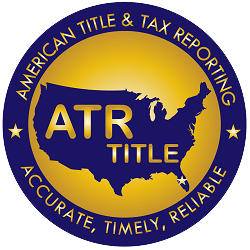Real Estate Scams and Title Fraud: How to Protect Your Property

In recent years, real estate scams and title fraud have become increasingly common, threatening homeowners, buyers, and investors with devastating financial and legal consequences. From forged deeds to wire fraud schemes, criminals are finding new ways to exploit vulnerabilities in real estate transactions. Falling victim to one of these scams can mean losing thousands of dollars—or even ownership of your property—without warning. The good news is that by understanding how these scams work and taking proactive steps to safeguard your assets, you can significantly reduce your risk.
One of the first steps in protecting yourself is understanding the types of real estate scams that are possible. Fraudsters often target buyers and sellers, but even homeowners who aren’t actively involved in a transaction can be victimized. These scams take many forms, but some of the most common include:
- Wire Fraud: Criminals pose as real estate professionals and trick buyers into sending closing funds to fraudulent accounts.
- Foreclosure Relief Scams: Scammers promise struggling homeowners assistance with mortgage payments or loan modifications, only to steal their money or even their home.
- Fake Listings & Rental Scams: Fraudsters list properties they don’t own, convincing renters or buyers to send deposits for homes that aren’t actually available.
- Deed Fraud & Title Theft: Criminals forge signatures and use fake documents to transfer property ownership without the real owner’s knowledge.
Each of these scams can lead to significant financial loss and legal complications. Scammers will not only disrupt your real estate transactions but can also cause major disruptions to your entire life.
How Title Fraud Happens
Title fraud, also known as deed fraud or property theft, occurs when a scammer illegally transfers ownership of a property by forging documents and filing them with the county recorder’s office. This type of fraud is especially dangerous because it can happen without the rightful owner’s knowledge, often targeting elderly homeowners, vacant properties, or rental properties. Once a fraudulent deed is recorded, scammers may attempt to sell the property, take out loans against it, or even evict the rightful owner.
Some of the most common tactics used in title fraud include:
- Forged Signatures: Fraudsters create fake documents that appear legitimate, complete with falsified signatures of the real owner.
- Identity Theft: Criminals steal personal information to impersonate homeowners and authorize fraudulent transactions.
- Fake Notaries and Witnesses: Fraudulent documents are often notarized using stolen or falsified notary stamps to make them appear authentic.
- Unrecorded Deeds: Some scammers convince homeowners to sign over their deeds under false pretenses, such as a “mortgage rescue” that is actually a fraudulent transfer of ownership.
Because title fraud can be difficult to detect until it's too late, homeowners must be proactive in safeguarding their property. Fortunately, there are ways to protect yourself from fraudulent activity. Take the initiative to regularly monitor your property records or consider using a title lock service to do this for you. Also, be cautious with any online transactions. Be wary of phishing attempts and secure your personal information.
The Importance of an Accurate Title Search
For buyers and investors, one of the most effective ways to protect yourself from real estate scams and title fraud is by ensuring a thorough and accurate title search is conducted before any property transaction. A title search is a detailed examination of public records related to a property, including previous ownership, liens, judgments, and any outstanding claims. This process helps verify that the seller has the legal right to transfer ownership and ensures there are no hidden issues that could create legal or financial trouble later.
An inaccurate or incomplete title search can leave buyers vulnerable to serious risks, such as:
- Undisclosed Liens: If a previous owner had unpaid debts tied to the property, those debts could become the responsibility of the new owner.
- Forgery or Fraudulent Transfers: A title search can reveal discrepancies in ownership history that may indicate past fraud or identity theft.
- Unresolved Heirs or Ownership Disputes: If a property was inherited but not properly transferred, multiple parties may have legal claims to ownership.
- Easements or Restrictions: Hidden legal restrictions, such as zoning limitations or utility company easements, may impact how the property can be used.
By working with a reputable title services company, buyers and homeowners can ensure that the title search is conducted thoroughly and accurately. This is one crucial step in protecting yourself against potential fraud and financial loss.
What to Do If You Suspect Fraud
If you suspect that your property records have been altered without your knowledge or that you’ve fallen victim to real estate fraud, it’s critical to act quickly. The sooner you take action, the better your chances of preventing further damage and legal traouble.
- Contact Your County Recorder’s Office: Request copies of any recent documents filed on your property to confirm whether unauthorized changes have occurred.
- Report the Fraud to Authorities: Notify local law enforcement, the FBI’s Internet Crime Complaint Center (IC3), and the Federal Trade Commission (FTC) if fraud is suspected.
- Consult a Real Estate Attorney: An attorney experienced in title fraud can help you take legal action to challenge fraudulent transactions and protect your rights.
- Alert Your Mortgage Lender & Title Company: If you have a mortgage, your lender should be made aware of any suspicious activity to prevent further unauthorized transactions.
- Consider a Title Insurance Claim: If you have an owner’s title insurance policy, check whether your coverage includes protection against title fraud and file a claim if applicable.
Acting swiftly can help prevent further complications, such as the fraudulent sale of your property or financial liabilities attached to your home.
Real estate scams and title fraud are serious threats, but with the right precautions, homeowners and buyers can protect themselves from financial loss and legal troubles. Conducting an accurate title search, monitoring your property records, and securing your personal information are all essential steps in safeguarding your property.
If you’re buying or selling property and want the transaction to proceed as safely and accurately as possible, consider partnering with a trusted title services company for your peace of mind.
